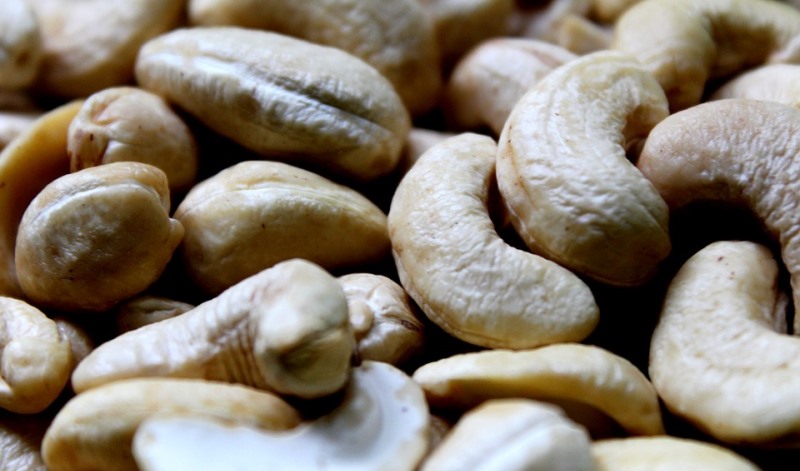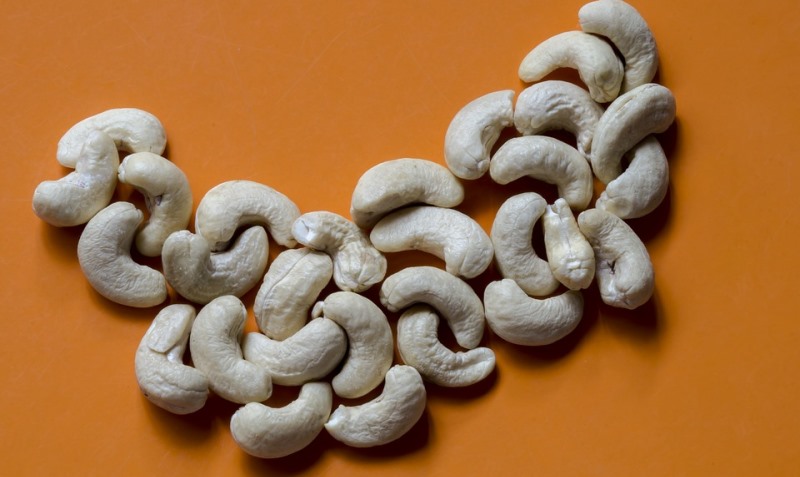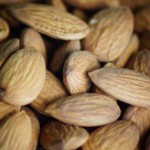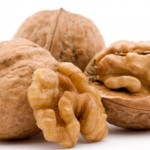The cashew tree is an evergreen that produces cashew apple and cashew seed, mostly found in the tropical regions. Cashew nuts, the light-colored, kidney-shaped nuts, taste amazing, and are one of the most versatile nuts there is. And the best part is that these nuts are packed full of health nutrients that do wonders for your body. Cashew nuts are beneficial for your health because they improve heart health, support healthy brain function, along with helping nutrient absorption and improving digestive health.
Nuts in general have become quite popular in recent years, probably because they are ranked as one of the healthiest foods there are, and are super helpful in warding off a wide variety of chronic diseases. Cashews are versatile, in that they taste great raw, or in sweet and savory dishes, or with other nuts like almonds, walnuts, or pistachios.
Suggested read: All the numerous health benefits of raisins
History of cashew nuts

Image source: Google, copyright-free image under Creative Commons License
Cashews are native to Brazil, where it was cultivated largely. However, it later spread to India, where it was brought by Portuguese inhabitants. Then, from India, is spread throughout Southeast Asia and Africa, and America too. The cashew tree is widely cultivated in the tropical regions of the world, especially in Nigeria, India, Vietnam, Indonesia, and the Ivory Coast. The name cashew is derived from the Portuguese name for the fruit, caju, which means ‘nut that produces itself.’
Cashew nuts are drupes because they grow at the end of the cashew apple fruit. The drupe develops first on the cashew apple tree, which later expands to become the cashew apple. Since this apple has a sharp taste and delicate skin, it isn’t commonly consumed. However, in some parts of the world, these cashew apples are considered delicacies, which are also valued and used for their natural medicinal qualities like fighting bacteria.
Cashew nuts nutritional facts
Cashew nuts have been used in traditional medicines for centuries now, aiming to heal numerous ailments, including diabetes and poor heart health. Cashew nuts are rich in vital nutrients and minerals, which make it ideal for improving heart health. Plus, cashew nuts are a rich source of unsaturated fatty acids and several other beneficial compounds, dietary fiber, minerals like zinc, copper, and magnesium, and high content of antioxidants in the form of phytosterols and phenolic compounds.

Image source: Pixabay, under Creative Commons License
Cashews are high-protein and high-fat foods. However, this fat content is healthy fats, made up of unsaturated fats in the form of monounsaturated fatty acids plus a bit of polyunsaturated fatty acids. Monounsaturated and polyunsaturated fatty acids have a positive effect on metabolism, thereby making cashew nuts ideal for lowering the risk of coronary heart disease, cancer, obesity, and diabetes.
100g of cashew nuts provide 553kcal of energy, along with:
- 30g of carbohydrates
- 9g of natural sugars
- 3g of dietary fiber
- 2g of water
- 18g of proteins
- 44g of fats
- 7g of saturated fats
- 7g of monounsaturated fats
- 8g of polyunsaturated fats
- Vitamin B1 – 37% of daily value
- Vitamin K – 32% of daily value
- Vitamin B6 – 32% of daily value
- Vitamin B5 – 17% of daily value
- Vitamin B3 – 7% of daily value
- Vitamin E – 6% of daily value
- Vitamin B9 – 6% of daily value
- Vitamin B2 – 5% of daily value
- Vitamin C – 1% of daily value
- Phosphorus – 85% of daily value
- Magnesium – 82% of daily value
- Manganese – 79% of daily value
- Zinc – 61% of daily value
- Iron – 51% of daily value
- Potassium – 14% of daily value
- Calcium – 4% of daily value
- Sodium – 1% of daily value
Health benefits of cashew nuts
Cashew nuts are high-density, high-fat, nutrient rich foods, that are super beneficial for your overall health. Let’s take a look at some of the major health benefits of cashew nuts.
1. Cashew nuts help fight heart disease.

Image source: Pixabay, under Creative Commons License
Cashew nuts, when consumed frequently, has the capacity to lower risk of heart disease by reducing cholesterol, blood pressure, and obesity. All these up the risk of heart disease, which is why cashew nuts need to be consumed frequently. Also, cashew nuts are believed to have positive effects on inflammation, oxidative stress levels, and vascular activity, that promote heart health.
LDL cholesterol is considered bad for your heart health, and cashew nuts help reduce it, while helping improve HDL cholesterol, the good kind of cholesterol. Moreover, cashew nuts are known to contain special phytosterol compounds, that are responsible for lowering cholesterol, and also to prevent plaque formation within artery walls. Lowered triglyceride levels and inflammation are good for a healthy heart, both of which are possible with cashew consumption.
2. Cashew nuts help with weight loss.

Image source: Google, copyright-free image under Creative Commons License
Although nuts in general and cashews in particular, are high in fat content, they support weight loss because they are nutrient-rich and provide a lot of essential minerals and fatty acids. Consumption of cashew nuts will make you feel fuller for longer periods of time, thereby curbing food cravings, unhealthy snacking habits, and overeating. The high fat content in cashew nuts help in making you feel fuller, while also increasing nutrient absorption of vitamin A and vitamin D, both of which are fat-soluble.
Cashews are one of the good sources of plant-based proteins, which help improve circulation and vascular reactivity. If circulation improves, it helps draw out the toxins from the digestive system, thereby leading to an improved metabolism and digestive health, and higher energy.
Suggested read: All you need to know about the numerous health benefits of dates
3. Cashew nuts help prevent cancer.

Image source: Google, copyright-free image under Creative Commons License
Consuming nuts on a regular basis has been associated with a reduced risk of certain cancers, specifically those that occur in the digestive tract, including colon and liver cancers. Since nuts are rich sources of antioxidant vitamins, these protect the body from cellular damage done by free radicals that cause oxidative stress, cell mutation, DNA damage, and cancerous tumor formation.
4. Cashew nuts reduce the risk of diabetes.
Being rich in monounsaturated fatty acids, cashew nuts slow the rate of sugar release into the bloodstream, thereby becoming known as possessing anti-diabetic properties. Cashew nuts also help reduce inflammation levels, and a diet that is rich in nuts results in preventing insulin resistance and diabetes formation. Also, cashew nuts are also beneficial in preventing and/or treating diabetes-related complications like obesity, cardiovascular risk, and arterial hypertension.
5. Cashew nuts help prevent gallstones.
Eating nuts regularly has been known to help reduce the risk of formation of gallstones. Gallstones are formed when there’s too much cholesterol in the bile, that circulates through the digestive tract. Usually, the liver doesn’t secrete that much cholesterol for it to harden and form stones, but when your liver is weak and is in poor health, cholesterol can act as glue, hardening and binding with other substances like calcium to form gallstones inside gallbladder.
6. Cashew nuts help maintain bone health.

Image source: Google, copyright-free image under Creative Commons License
For healthy bones, calcium, magnesium, and potassium are necessary, all of which are present in cashew nuts, together with a low sodium intake. These minerals specifically protect against bone demineralization. Also, since cashew nuts are rich in vitamin K, they help in bone-building. If you have a vitamin K deficiency, consuming cashew nuts regularly will help address that. Vitamin K, along with minerals like calcium, helps support bone mineralization and maintain bone mineral density, which help protect your bones against fractures and osteoporosis.
7. Cashew nuts help promote healthy brain function.
Nuts are one of the best sources of plant-based fats that support cognitive function, mood regulation, and healthy aging. Also, brain is mostly made up of fat, and hence relies on a healthy supply of good fats through the diet. A diet that is deficient in healthy monounsaturated and polyunsaturated fatty acids has been associated with increased risk of numerous mental disorders like anxiety or depression, dyslexia, dementia, and ADHD.
8. Cashew nuts help prevent migraine headaches.

Image source: Google, copyright-free image under Creative Commons License
As stated above, cashew nuts help in supporting a healthy brain function, which also means improved blood circulation, while reducing blood pressure. Phytosterols, the plant-based proteins found in cashew nuts are beneficial in reducing headache occurrence, duration, and frequency. Also, rapid changes in blood sugar and hypoglycemia are well-known triggers for migraine headaches, which the cashew nuts help fight.
Suggested read: All the numerous health benefits of almonds
9. Cashew nuts help maintain healthy skin.
The healthy fatty acids present in cashew nuts help support healthy skin, by keeping the skin hydrated and free from flaking, premature aging, and irritation. Also, cashews are rich in copper, which helps in the production of melanin, the skin and hair pigment, and also collagen, the compound that is responsible for skin’s elasticity and fighting against aging.
These are all the numerous health benefits of cashew nuts that you probably didn’t know. Now that you do, here’s a list of different ways to incorporate cashew nuts in your daily dietary intake:
- Cashew nuts consumed raw
- Cashew butter – is made by soaking and blending cashews. With a bit of salt, this can easily replace peanut butter.
- Cashew milk – is a great alternative to coconut milk, almond milk, or dairy milk, if you’re lactose intolerant.
- Cashew flour – is made by drying and grinding cashew nuts. Can be used along the lines of almond meal.
What’s stopping you from embracing cashew nuts? Start munching on them today!
Featured image source: Pixabay, under Creative Commons License













